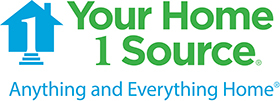
When you’re shopping for a new home, your priorities are likely to be the location and features of a home more than the cost of insuring it. But if you’re budget-conscious, it’s smart to consider some of the factors that influence how much you’ll pay for homeowner’s insurance. If you already own your home, you can still find ways to save on your insurance costs.
If you’re shopping for a home, try these tips:
1. Don’t wait to shop for insurance.
Once you have a home under contract and a settlement date, contact a few insurance companies right away to get a quote for homeowner’s insurance. Don’t wait until the week of closing.
2. Check for discounts for bundling your insurance.
"Discounts are available for customers who bundle more than one Allstate policy, such as auto, homeowners and life insurance," says Orlando Mercado, director of the homeowner’s product management line for Allstate.
3. Consider insurance costs when choosing a home location.
Homes located in flood zones or in hurricane-prone areas carry higher costs. Homes located closer to fire stations generally have lower insurance premiums, says Mercado.
4. Consider insurance costs when comparing home features.
"Some features that may result in higher insurance premiums or even being rejected for insurance include older roofs, pools and trampolines," says Mercado. "Many companies provide better rates and/or discounts for homes with newer roofs."
5. Insure your home for the cost to rebuild.
An insurance agent can help you determine an appropriate coverage level to replace your home in a disaster, which won’t necessarily match the price paid for your house. Reason? You don’t need to insure the land because if your home is destroyed by a fire or a tornado you can rebuild on the land you own.
6. Boost your credit score.
Homeowner’s insurance premiums are based in part on your credit history, according to the Insurance Information Institute. Having poor credit scores will likely increase the cost of your insurance policy.
To lower your homeowner’s insurance premiums on a house you already own, try these tips:
7. Raise your deductibles.
A higher deductible results in a lower monthly premium. Just be careful that you would be able to pay the deductible should you need to make a claim.
8. Pay your premium in full.
At your initial closing you typically need to pay one year plus two months of homeowner’s insurance premiums. If you pay in full every year you can eliminate installment fees, says Mercado.
9. Install protective devices.
Many insurance companies offer discounts to customers who install protective devices such as sprinkler or security systems in their homes, says Mercado. The Insurance Information Institute (I.I.I.) says installing storm shutters can also garner a discount.
10. Maintain your home.
"Proper upkeep, such as replacing an old roof, will not only help you minimize your risk of loss, but can also result in a decrease in your premium," says Mercado.
11. Ask for discounts.
Some companies offer a discount for long-term policyholders, according to I.I.I. You may also be eligible for a discount if you’re retired or belong to a professional association that has a relationship with an insurance company.
An annual home insurance review can help you identify potential discounts as well as make sure you have the coverage you need to protect your home and your finances.
